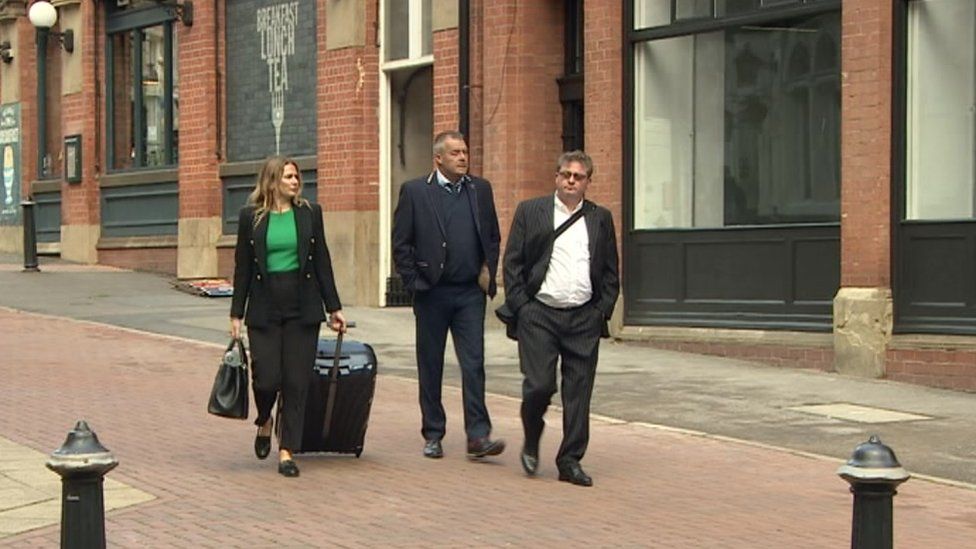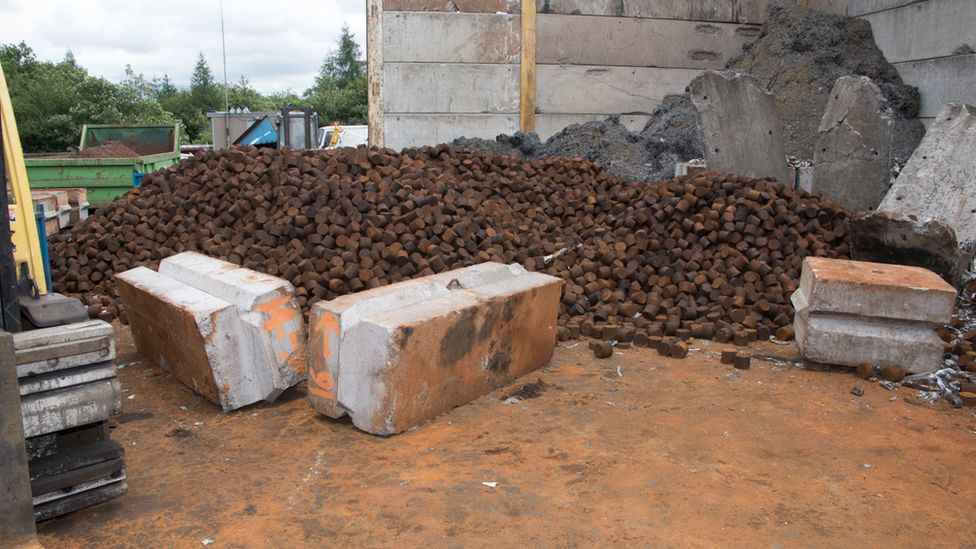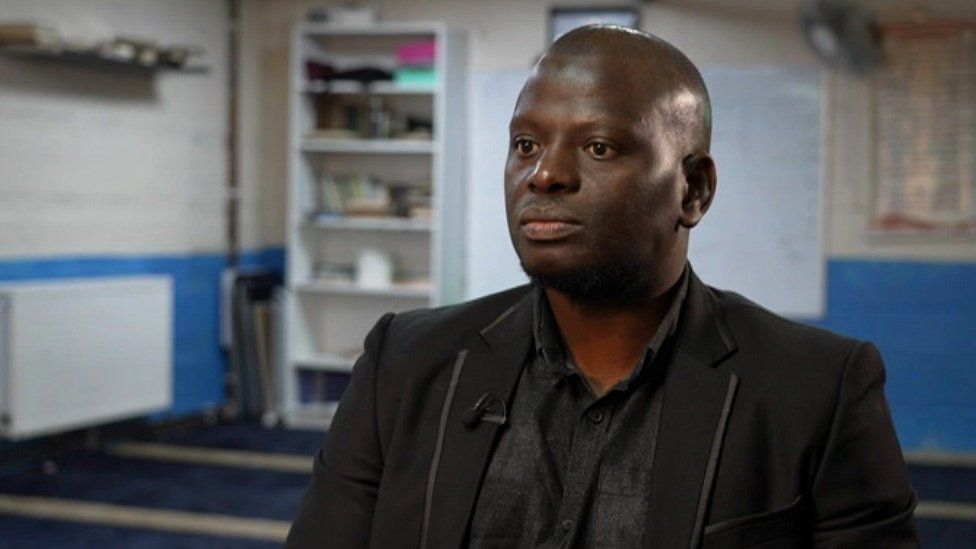Two directors of a metal recycling firm have been convicted of health and safety breaches after five men died when a 45-tonne wall fell on them.
The Birmingham wall was overloaded with 263 tonnes of briquettes and so close to toppling a gust of wind could have brought it down, a court heard.
Health and safety investigators described the scene in July 2016 as one of the worst they had encountered.
Wayne Hawkeswood and Graham Woodhouse denied risking workers’ safety.
A jury convicted them and their companies of all 12 counts under the Health and Safety at Work Act after a trial which lasted six weeks. The dead men’s families described Shredmet and Hawkeswood Metal Recycling’s failures as “scandalous and inexcusable”.
The directors will be sentenced at a later date.

The pair are directors of Hawkeswood Metal Recycling and Shredmet, now known as ENSCO101, in Nechells, which were also prosecuted by the Health and Safety Executive (HSE) at Birmingham Crown Court.
Almamo Jammeh, Ousmane Diaby, Bangally Dukureh, Saibo Sillah and Mahamadou Jagana died at Shredmet on 7 July 2016 when the overloaded wall gave way as they cleared a metal storage bay.
Over 260 tonnes of metal briquettes had been piled up against it in an adjacent bay leaving it precariously close to toppling over, jurors heard.
Investigators discovered other leaning or unstable walls on site and said poor safety records were kept.
Jurors were told the directors, who ran a multimillion-pound scrap metal business, offered basic training and staff with little or no English were asked to sign lengthy safety induction forms.
A neighbouring company also photographed walls leaning on to its site from Shredmet and raised concerns with the company at least two years before the men were killed, the court was told.

In a statement, the relatives of the men – four from Gambia and one from Senegal – said they welcomed the verdicts.
“The trial examined the largest loss of life in a single incident at a recycling plant in the United Kingdom.
“The proceedings have exposed the scandalous, inexcusable and gross failings of Shredmet and Hawkeswood Metal Recycling and its directors Graham Woodhouse and Wayne Hawkeswood which led to the deaths of our five loved ones on 7 July 2016.”
Although guilty verdicts have been returned relatives are critical of the lengthy HSE investigation.
“The families are not happy with the time that it took by the HSE to conclude their investigation,” Mankamang Sawo, a friend of victim Saibo Sillah and his widow Dado, told BBC News.
“This was raised in the demonstration we had in 2020 to show how dissatisfied the families were.”

He said they did not accept from the HSE that the pandemic disrupted the case as the deaths took place four years earlier, but accepted there was relief the case had now been heard.
Accidental death verdicts were returned at the men’s inquest in 2018 with jurors finding the risk of its collapse was never identified, despite being “foreseeable”.
The five men had been working in Spain but came to the UK after finding it increasingly difficult to find employment on the continent.
They were hired through an agency to work at Shredmet and helped clear and sort metals.
They were killed instantly in the collapse and had to be identified by their fingerprints.
A sixth worker suffered a broken leg, another escaped injury after stepping outside the bay and a supervisor in a mini-digger suffered cuts and bruises.
Amy Kalay, principal investigator with the HSE inherited the investigation in July 2019, which she said had been “fully resourced” from day one but accepted it had taken a long time.
Despite that, she said it “was right and proper that we followed those lines of inquiry to make sure that those responsible for the failings at the site were held accountable”.

What her team alongside emergency responders encountered at the scene would stay with them, she said.
“From a personal point of view, I’ve been with the HSE now for just over 20 years and this is one of the worst cases that I’ve had to investigate and I think it was one of those that will stay with me forever,” she added.
Had the directors given more thought to how the wall was constructed and the amount of metal that could be kept in the storage bays, the men would be alive today, she said.
“We had 263 tonnes worth of briquettes piled against a wall that had a cumulative total of 45 tonnes – nobody was going to survive survive that incident… we had had five men that died and three others could easily have been in the bay at the time,” she said.
“It’s just a tragic instance, that could’ve been prevented.”
The two companies were accused of several counts of failing to conduct its undertaking to ensure the men were not exposed to risks to their safety arising from the storage of [scrap] material in, and its removal from, storage bays.
The directors were found guilty of consenting to the offences their companies were guilty of, or that they were attributable to their neglect.
